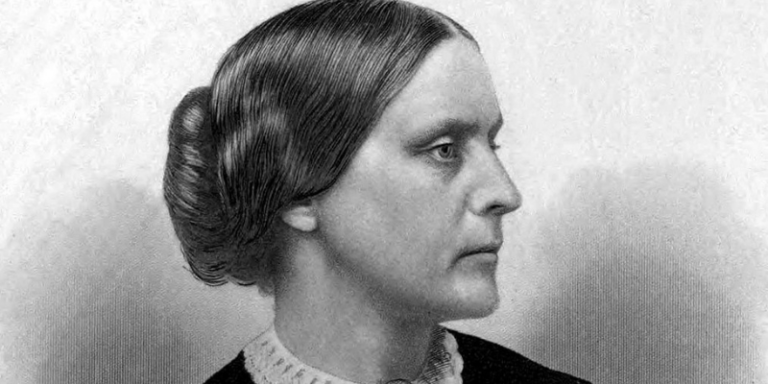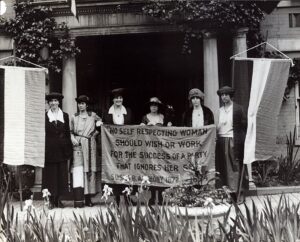Susan B. Anthony: A Women’s Pioneer Pardoned
“The true republic: men, their rights, and nothing more; women, their rights, and nothing less.” - Susan B. Anthony
By: Kelli Ballard | August 18, 2020 | 571 Words

Susan B. Anthony (Photo by Universal History ArchiveUIG via Getty images)
August 18 marks 100 years since the 19th Amendment was ratified, giving women the right to vote. President Donald Trump, in a surprise move, pardoned suffragette Susan Brownell Anthony, to mark the anniversary. Anthony’s crime? She dared to vote.
During a White House ceremony in honor of the 19th Amendment, Trump said, “She was never pardoned. She got a bargain for a lot of other women, and she didn’t put her name on the list. So she was never pardoned for voting.”
The Woman Behind the Suffrage Movement
Susan B. Anthony was born on February 15, 1820, in Massachusetts. She was raised as a Quaker, which instilled the belief that everyone, regardless of gender, was equal under God. At the age of 17, she attended a Quaker boarding school but had to quit her studies after only one term when the economic Panic of 1837 hit, and her family suffered financial hardship. Times were tough, so Anthony went to teach at a Quaker boarding school and the family moved to New York State.
Several years later, Anthony returned home and was introduced to two of her father’s friends: William Lloyd Garrison and Frederick Douglass. Speaking with them impassioned her to fight for the freedom of slaves and against the oppression of women.

Photograph of six suffragists (Universal History Archive/Universal Images Group via Getty Images)
The first Women’s Rights Convention in the U.S. was held in 1848 at Seneca Falls, which kickstarted the Women’s Suffrage movement. Anthony did not attend the gathering, but her mother and sister did. Just a couple of years later, in 1851, Anthony met Elizabeth Cady Stanton and the two ladies formed a strong friendship. The pair fought for women’s rights for more than 50 years. Anthony had already been giving public speeches against slavery, and she soon started advocating for the right of women to vote.
While the First Amendment protects the right to assemble in public, it was still frowned upon for women to address such indelicate topics, and Anthony risked being arrested for expressing her not-so-popular views. “Trust me that as I ignore all law to help the slave,” she said, “so will I ignore it all to protect an enslaved woman.”
Congress passed the 14th and 15th Amendments, giving African American males the right to vote but not females – Stanton and Anthony were appalled that women had been left out, so the two formed the National Woman Suffrage Association.
Anthony, her sisters, and nearly 50 women in Rochester registered to vote in the 1872 presidential election. On November 18, the activist was arrested for illegally voting as were the other women who dared to defy convention. At her trial, Anthony protested her treatment, saying it was:
“[A] high-handed outrage upon my citizen’s rights. You have trampled under foot every vital principle of our government. My natural rights, my civil rights, my political rights, my judicial rights, are all alike ignored.”
Justice Ward Hunt ordered her to pay a $100 fine for her crime. “I shall never pay a dollar of your unjust penalty,” she said, and kept her word.
Anthony did not live long enough to see the ratification of the 19th Amendment, also known as the Susan B. Anthony Amendment. She died in 1906, 14 years before the change was approved, but her legacy lives on. In modern times, women flock to her gravesite to place “I voted” stickers in her honor.
















